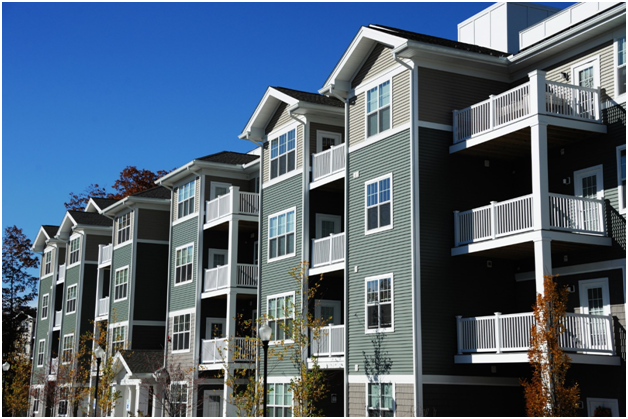Are you hoping to start a lucrative income stream by investing in property? If so, you need to understand the responsibilities that go into taking ownership of a building. You’ll have to manage monthly payments, handle repairs, and find tenants.
Fortunately, with some wise decisions on the front end, you can build a strong property investment strategy. You don’t want to jump into property investment without knowing the pitfalls. Read on to learn about 7 common property investment mistakes and how to avoid them!
1. Not Doing Research Can Land You in Trouble
It’s rarely wise to go into a significant purchase blindly. And when it comes to investing in property, that guidance is particularly true. From undisclosed foundation issues to sinking home values, several factors can turn a property investment into a bad decision.
Research the area where your targeted property is located. Is the unemployment rate low and is the school district strong? And is there an active push for investment in local businesses?
You’ll get a much better return on investment if you purchase property in a thriving or revitalized area. By contrast, you’ll be taking a dangerous risk if you invest in a part of town that is losing population numbers and industries.
2. Stay Away from Unmotivated Sellers
When it comes to investing in property, you need to size up the sellers. Your goal should be to secure a property quickly so you can make necessary improvements and rent it out. A seller who isn’t terribly serious about selling could waste your time.
Each time you sit down to negotiate or look at the property is a significant time investment. An unmotivated seller might be trying to gouge your bank account and only accept an unreasonable offer. This is especially true if an agent is involved in the process.
It’s smarter to seek out a seller directly. They may be trying to unload the property quickly because they’ve lost a job or want to avoid an inheritance tax. In those instances, they’ll be more willing to offer you a better deal.
3. Consider the Cost of Owning Property
Depending on the types of property you pursue, you may end up investing more money than you expect. Renovations, electrical work, and plumbing issues all can ratchet up the cost of owning property. Do the math and make some estimates first!
Don’t overlook taxes, inspection costs, and other municipal fees you’ll end up paying. You can avoid buying a lemon if you do your research on the front end. It helps to get a property that doesn’t come with immediate concerns, like an aging HVAC system.
If you’re not able to come up with the cash to make a purchase, consider going with a private lender. When you visit this link, you can learn how easy it is to get approved.
4. Common Property Investment Mistakes Include Taking On Too Much
One of the biggest mistakes you can make as a novice property owner is taking on too much at once. Even the most organized person can get overwhelmed. After all, you’ll need to tackle maintenance, tenant screening, and other issues that come with investing in property.
And if you’re committing to property ownership in a snowy climate, don’t forget that snow removal comes with the territory. It can be expensive to outsource this responsibility to a local company, but it can be time-consuming to deal with it yourself!
Ultimately, you’re better off building your property investment strategy in small increments. Start with one property, such as a duplex, where you won’t have to account for too many tenants.
5. Don’t Forget to Raise Rent
Even though your tenants might love it if you keep their rent prices the same, you won’t do your bank account any favors. Each time a lease is up for renewal, take the opportunity to increase the rent prices.
You don’t want to ratchet up a $600 monthly fee to $700 since that could seem unreasonable. But you can go up by $20 per month without scaring away your tenants. Raising the rent will allow you to keep pace with tax increases and pocket more money over time.
6. Hire Out Responsibilities When Investing in Property
Another common mistake is trying to do everything yourself. This can lead to burnout, and it could land you in financial trouble if you’re not careful. The last thing you want is for mortgage payments to become too much of a stretch.
You’re better off delegating some tasks to a property manager or assistant. This is particularly true when you own multiple types of property. You could even start with someone on a part-time basis if you’re wary of paying too much.
Consider hiring someone strictly to handle the financial component of the job, for example. They can help you manage your cash flow since there may be times when your property is vacant. They’ll help you determine how much you need to set aside to cover those months when the property isn’t producing income.
7. Keep Your Emotions in Check
If you let your emotions rule your thought process when investing in property, you risk some significant missteps. For instance, you could let your nostalgia for an old neighborhood cloud your judgment about that neighborhood’s current state. If the neighborhood has gone downhill, you won’t get a good return on investment.
Have a friend or spouse come with you to check out a potential property. They can be the voice of reason when you’ve been seduced by architectural features and can’t see looming problems!
Get a Property Investment Strategy
Common property investment mistakes can derail your best intentions. From forgetting to raise the rent to acting on emotions, it’s easy to make a mistake. But if you develop a property investment strategy and stick with it, you can generate income. Need more financial advice to improve your lifestyle? Check back for fresh and informative articles!








